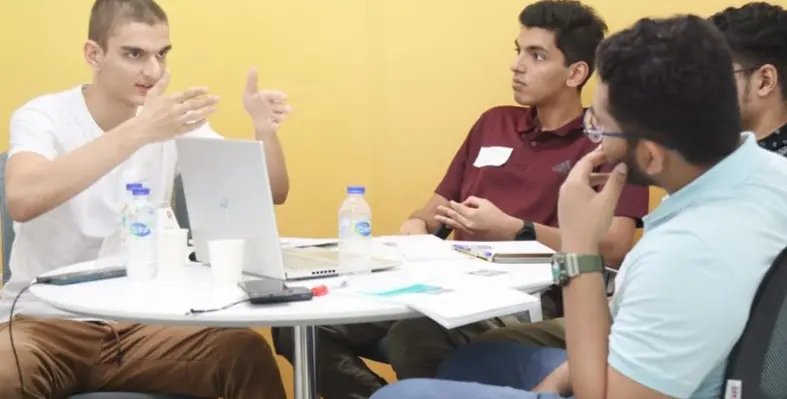A group of students from the American University of Sharjah (AUS) College of Engineering used fungus for an innovative way to seek new transportation solutions
Using slime mold, also known as fungi Physarum polycephalum, a team of first-year AUS students produced a sustainable proposal to enhance the transportation system in the city of Sharjah as their entry for the Youth Impact Lab 2023 Competition. The team took home first place for their project, which benefited from the fungi’s natural ability to solve mazes.
When a food source is placed at one end of a maze, the fungus has the ability to branch out in all directions in search of it. Once it finds the food, it retracts all branches that did not locate it, leaving behind a trail of slime to avoid going into that direction in the future.
“In our experiment, we created a nutrient maze representing Sharjah, allowing the fungus to grow and form an optimal transportation network. This concept, previously successful in Japan, which is known for having one of the best transportation systems globally, inspired our approach. We proposed starting with a low-risk reorganisation of existing transportation modes. Once the new system's effectiveness is proven, gradual investment by the Sharjah Roads and Transport Authority (SRTA) would lead Sharjah to have one of the world's premier transportation systems. Our project stood out for its realistic approach and clear governance plans, making it a feasible solution to the transportation challenge,” said Hasan Akel, majoring in computer science and mathematics.
The project, proposed under the theme of “Sustainable Cities,” looked at utilising current transportation assets such as buses, as well as developing a maglev train, underground tunnels and a metro system. The team now wants to present the project to the SRTA.
Akel, who proposed the initial project idea, worked closely with teammates computer engineering student Rizwanul Abidin Asim, mechanical engineering major Muhammad Salman, computer science and math student Salim Akel, and Computer Engineering student Ryhan Nijam.
“Under our neoteric solution with the help of a fungus chooses that chooses the best possible path to reach its destination, we were able to propose best possible routes for buses; metro lines that could be stretched to the borders of Ajman and Dubai, leading the three emirates to work collaboratively; a maglev train that runs from Al Majaz to Khor Fakkan, thus facilitating tourism; and underground tunnels that could begin from densely populated areas to the industrial areas in Sharjah to minimise traffic on highways like E311 and E11,” said Asim.








